Wood Curl Packaging Reduces Waste, Supports Healthy Forests and Local Economy
December 04, 2020
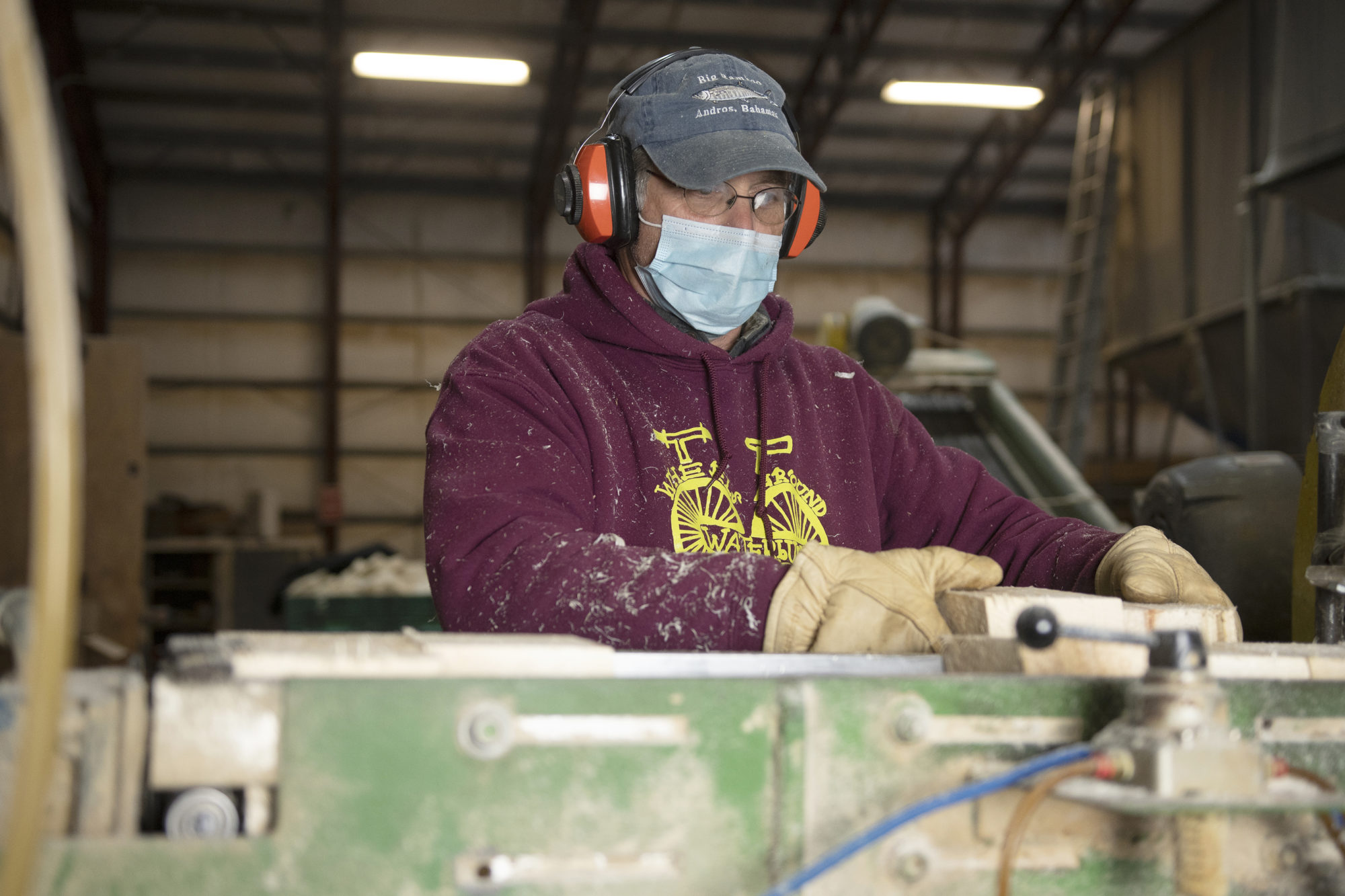
By Christine McGowan, Forest Products Program Director at Vermont Sustainable Jobs Fund
Resourceful Vermonters have long looked to the forest for wood heat, building materials, and furniture, but Jim Lovinsky, owner of Sylvacurl in East Hardwick, may be among the first to see an alternative to plastic packing peanuts.
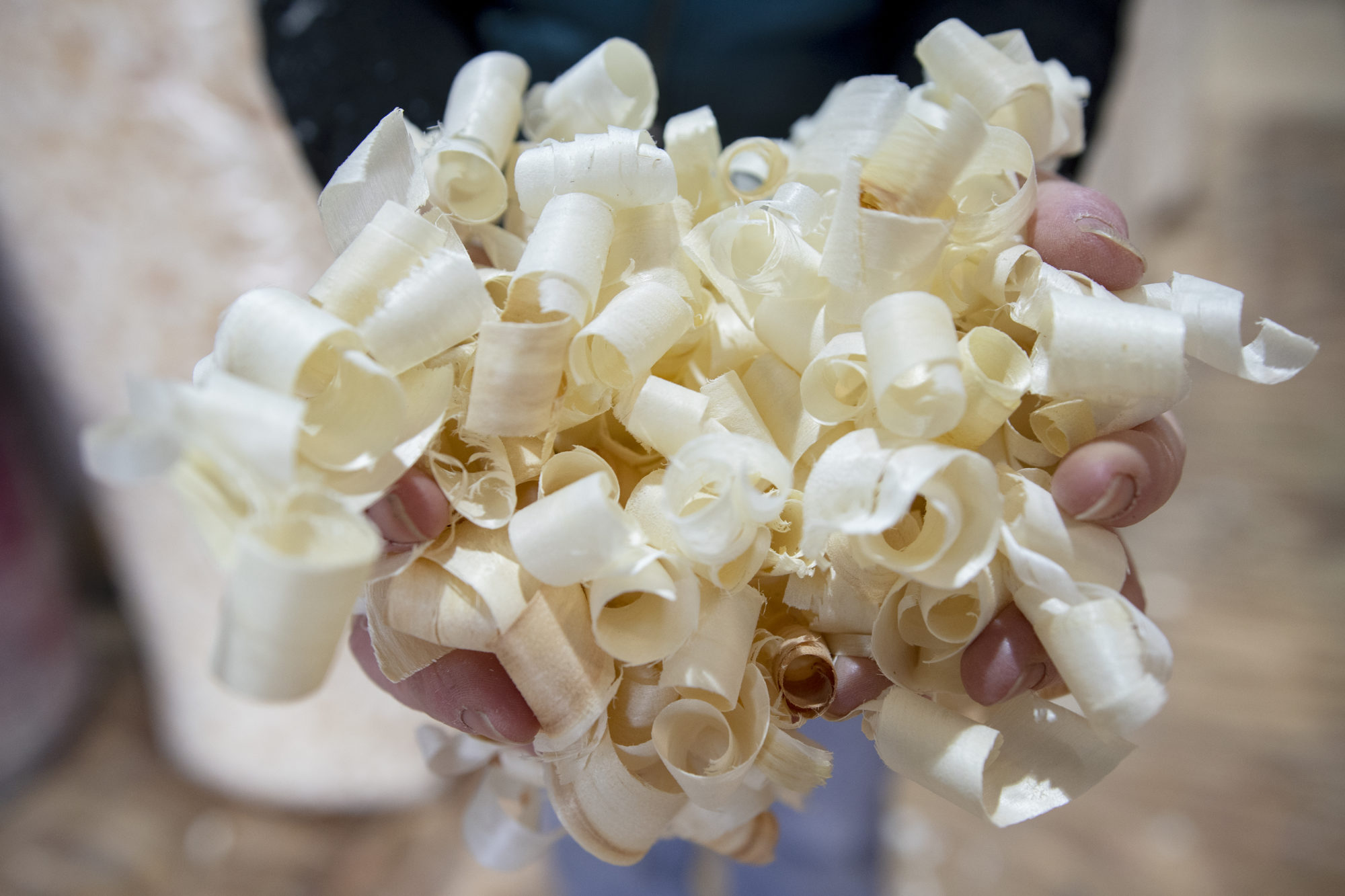
Sylvacurl manufactures wood curls with poplar, a native tree species. Light in color with a neutral odor, the wood holds the curls nicely and condensed to create secure packaging, even for fragile items. Photo by Erica Houskeeper.
The company produces wood curls that can be used in place of plastic and polystyrene packaging materials. Compostable and biodegradable, the curls are free of dyes or chemical treatments and can be reused or simply returned to the earth. “It’s no different than leaves falling off the trees,” said Lovinsky.
As many of us look to ship gifts to family and loved ones this season, we’ll also be contributing to an estimated 25 percent increase in household waste—more than 25 million tons of garbage—between Thanksgiving and Christmas, according to the EPA. The Lovinskys hope to make a dent in the amount of waste being sent to landfills, while supporting Vermont’s forested working landscape.
Ahead of Their Time
Sylvacurl has been around for more than twenty years, when Lovinsky first became concerned about forest industry jobs as paper mills began pulling out of New England in the 1980s.
“As the paper mills moved overseas, New England was left with fewer markets for low-grade wood,” said Lovinsky, “which threatened not only jobs, but our working landscape as well.”
Working with leaders from UVM Extension, the Vermont Department of Forests, Parks & Recreation, and the Governor’s Task Force on Northern Forest Lands, Lovinsky became an advocate for the industry, working to preserve jobs and prevent large tracts of forest from being sold off. Finding new markets for low-grade wood was a constant topic of conversation, so when he saw an ad from a company in Georgia that was using wood curls for horse bedding, the idea for Sylvacurl was born.
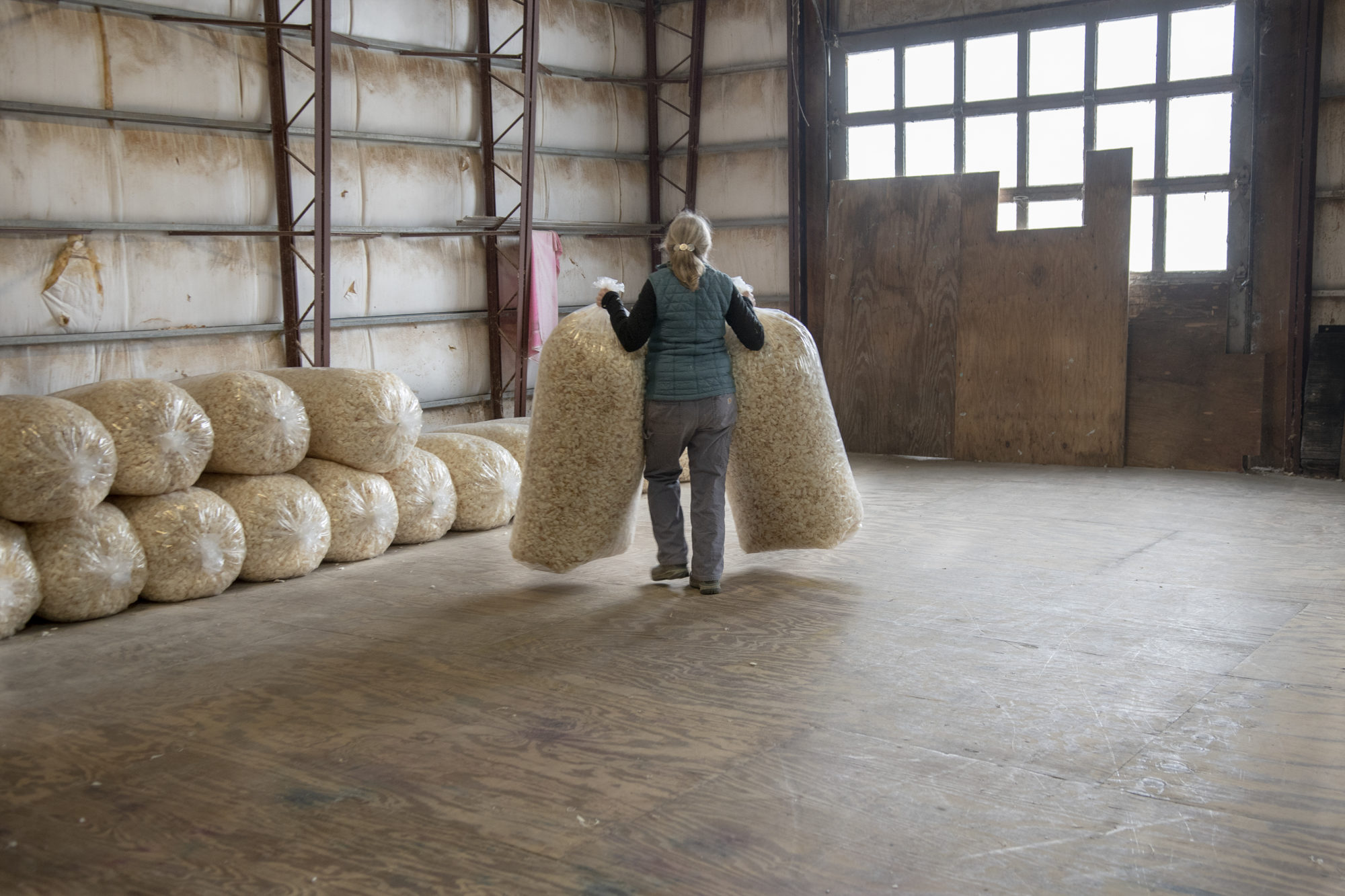
Mary-Ellen Lovinsky bags wood curls at Sylvacurl’s production warehouse in East Hardwick. Photo by Erica Houskeeper.
Purchasing the equipment he needed to process curls from a company in West Virginia, Lovinsky officially opened Sylvacurl in 1993. Instead of animal bedding, however, he focused on an alternative to plastic and polystyrene packaging. Sourcing wood from nearby Lamarre’s sawmill in Brownington, he quickly discovered that poplar, a fast-growing native species, was perfect for manufacturing wood curls. Light in color with a neutral odor, the wood held the curls nicely and condensed to create secure packaging, even for fragile items.
The company initially worked seasonally to supply local companies including Shelburne Farms, Fat Toad Farm, Nervous Nellies, and Jasper Hill with packaging during the holiday season, and found some interest from potpourri manufacturers. While they could see potential to scale the business, they found that for many businesses and consumers, sustainable packaging was not top-of-mind in the 1990s.
“We may have been a little ahead of our time when we started out,” he said, noting that when they first opened, they had to educate buyers about the environmental impact of styrofoam before they could make a pitch for their product.
“No one was talking about a circular economy back then,” said Lovinsky, adding that Sylvacurl “closes the loop” as a business. In addition to the curls being biodegradable, the sawdust that they shake off prior to shipment is used for animal bedding on their farm, and later composted. From there, the compost is used to top dress their gardens, completing the cycle.
An Opportunity to Do More
Of course, all of that has changed in recent years with businesses from Amazon to Zappos working to reduce their carbon footprint through sustainable packaging. A recent study on consumer trends indicates that 57 percent of people are willing to change their purchasing habits in order to reduce their negative environmental impact, and 70 percent will pay a premium for sustainable, eco-friendly goods. Add to that a sharp increase in online shopping during Covid-19 and Sylvacurl may have an opportunity to make a real dent in those styrofoam packing peanuts.
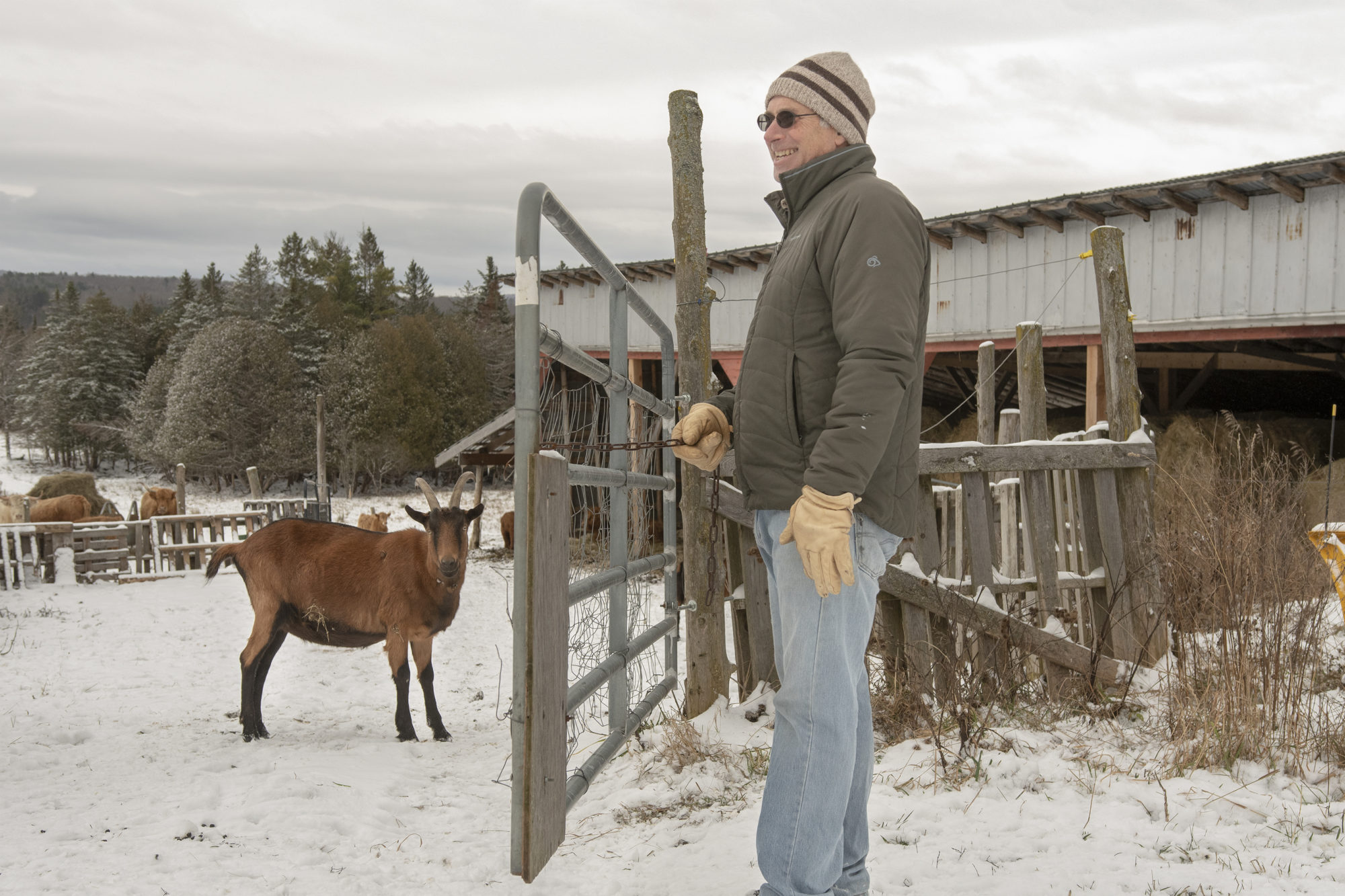
Jim also manages their Eastview Farm in East Hardwick, where he and his wife, Mary-Ellen, grow organic seed garlic and raise dairy goats and Highland beef cattle. Photo by Erica Houskeeper.
“Up until now,” said Lovinsky, “Sylvacurl has been a side business, something my wife and I could manage while still working full time. We grew slowly and organically, just the way we wanted to, for twenty years.”
Over the past eight months, however, existing customers like Jasper Hill Farm, Blanc Creatives, and igourmet have increased their orders for Sylvacurl packaging as their own online sales have skyrocketed. New customers are also coming in through referrals. This holiday season, Lovinsky expects to ship 10,000 cubic feet of curls to customers, the equivalent of approximately 4,500 board feet.” According to Lovinsky, that’s a 40 to 50 percent increase over last year– a trend he hopes will continue as the new normal post-pandemic.
“We are reassessing our growth,” said Lovinsky, who would like to focus more on marketing and sales for the company. “We certainly have an opportunity to do more. And of course, growth brings challenges as well, which makes it that much more exciting.”
Good Stewards, Good Neighbors
Lovinsky has held onto his day job as Executive Director of the Lamoille Housing Partnership. His wife Mary-Ellen, a reading specialist, also manages their Eastview Farm in East Hardwick, where they grow organic seed garlic and raise dairy goats and Highland beef cattle. Their grown children, James and Kathryn, helped as active participants in the business growing up and still help out when they can, but for the first time, Lovinsky can see needing to hire some part- or full-time help.
Whether it’s manufacturing natural packaging, advocating for forest industry jobs, helping Vermonters find affordable housing, or growing good food, the thread that runs through the family business is to be good neighbors and good stewards of the land. “We will always work to make a difference in the place we live,” said Lovinsky.
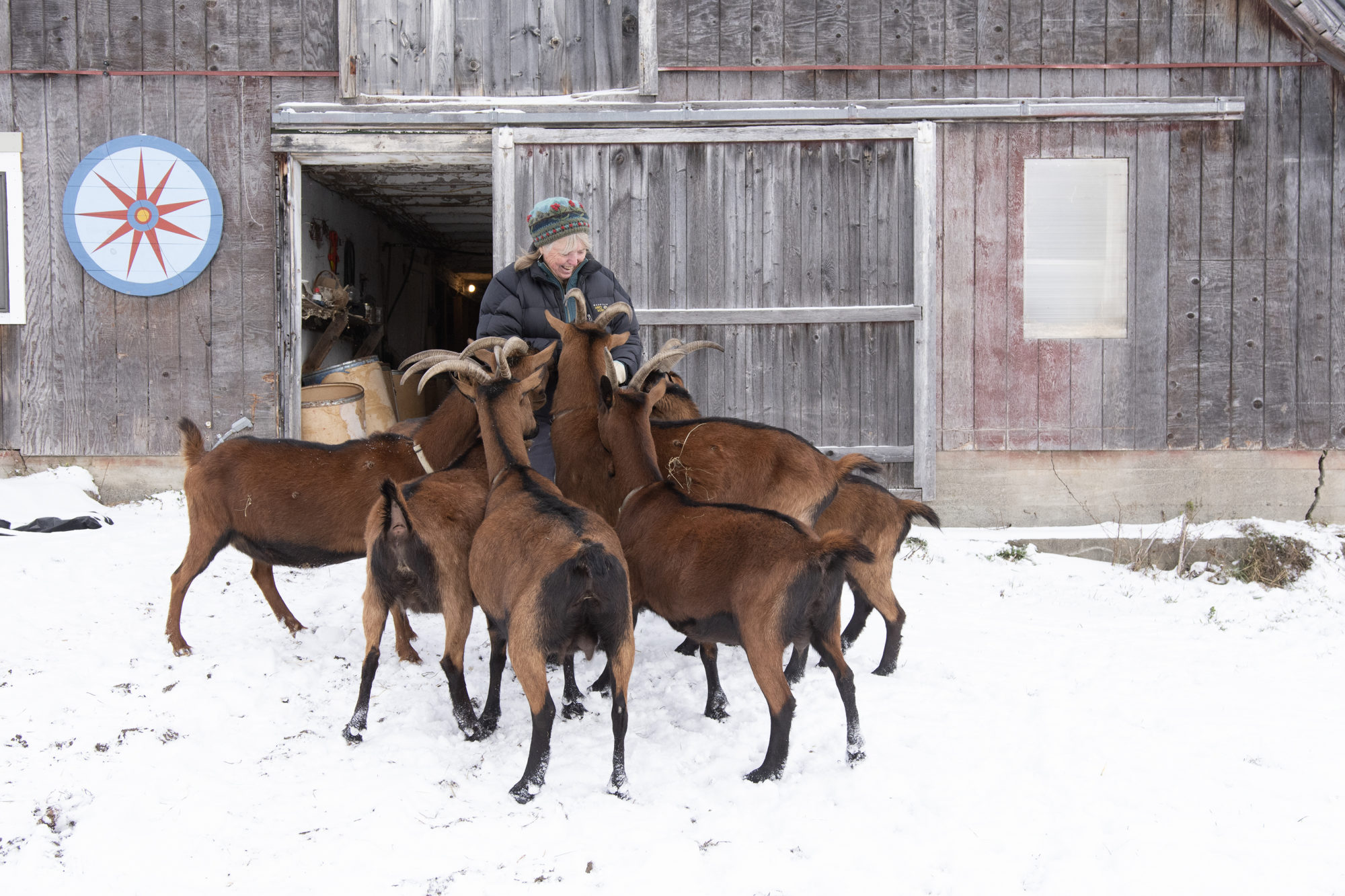
Mary-Ellen Lovinsky also co-manages the couple’s Eastview Farm in East Hardwick, where they grow organic seed garlic and raise dairy goats and Highland beef cattle. Photo by Erica Houskeeper.
About the Vermont Forest Industry Network
Vermont’s forest products industry generates an annual economic output of $1.4 billion and supports 10,500 jobs in forestry, logging, processing, specialty woodworking, construction and wood heating. Forest-based recreation adds an additional $1.9 billion and 10,000 jobs to Vermont’s economy. The Vermont Forest Industry Network creates the space for industry professionals from across the entire supply chain and trade association partners throughout the state to build stronger relationships and collaboration throughout the industry, including helping to promote new and existing markets for Vermont wood products, from high-quality furniture to construction material to thermal biomass products such as chips and pellets.
Read More Stories Like This:
- Maple Landmark, America’s “Local Toy Company,” Rooted in Family, Forest
- Loggers and Lagers: How Healthy Forests Help Brew a Better Pint
- Vermont’s Lafoe Logging Named Northeast Region “Outstanding Logger”
- Can Vermont’s Forests Help Save the Planet?
- The Vermont Forest Industry Network Launches “The Rough Cut”




